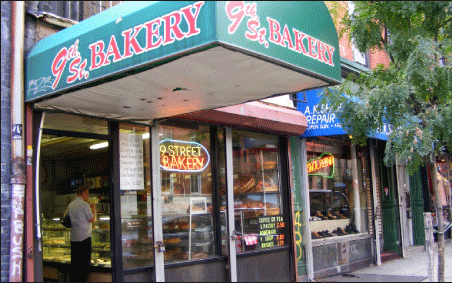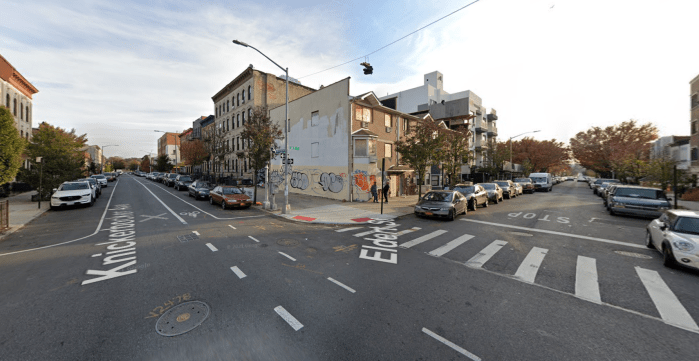By Christian Taske
At 3 p.m. the bakery’s showcases are empty except for half a dozen pastries and a few loaves of bread. While the bare shelves could be mistaken as the result of a successful business day, they instead tell a story of economic hardship.
Along with only a handful of ethnic mom-and-pops remaining in the East Village, the 9th St. Bakery is struggling to survive beacuse of diminishing clientele and rising rents.
“There are just no customers for our products left. We used to sell twice as much,” said Oleg Kucherenko, the bakery’s owner. “In the past, when it was cold it was really busy, and in the summer it was really slow. Now it’s slow all year round.”
The Ukrainian doesn’t bake the goods he sells and relies on suppliers who recently raised prices. Every day at 5 a.m., Kucherenko and his wife Tetyana pick up only as many goods as they believe will sell that day, leaving shelves empty and the future of their store uncertain.
The 9th St. Bakery is sharing this uncertainty with the neighborhood’s few immigrant-owned stores. With expansions of New York University and Cooper Union College, the East Village was transformed from a once popular destination for immigrants and artists to a major nightlife district for college students.
Store owners and community activists say landlords have adjusted to this change by jacking up rents as soon as the entrepreneurs’ leases expire. Almost 300 bars and restaurants throughout the East Village have displaced many of the ethnic meat and pastry shops on First and Second Aves.
“The landlord can make more money if he rents out to a licensed establishment,” said Anna Sawaryn of the Coalition to Save the East Village. The lifelong East Village resident says in the past six months alone three butcher shops had to close after their leases expired.
Rob Hollander from Lower East Side Residents for Responsible Development has made similar observations. He said in some cases, store rents were increased by 600 percent to force store owners out.
“They have long leases,” Hollander said. “But once they expire they all will be replaced with bars and restaurants with full liquor licenses. It’s just a matter of time.”
Kucherenko’s lease will last five more years. He is not sure what will happen after it expires but hopes his $2,000 rent will not increase too much. “On the avenues it’s the rent. On the streets it’s the disappearing customers,” Kucherenko said about the problems for small businesses. “Around the corner the rent can be $10,000 a month.” He thinks about turning his bakery into a café to attract an increasing number of young residents.
Hollander said the bakery benefits from its size. The store is not big enough to house a bar or restaurant.
Some store owners are reluctant to give their names.
“They are afraid of the landlords,” said Sawaryn. “They don’t want to piss them off.”
“They [the landlords] put everybody out of business,” said a man working at Polish G.I. Delicatessen on First Ave. He identified himself as the owner. “They have become greedy. They don’t give a damn about you.”
Selling out is the only option these owners have if lawmakers don’t respond to the problem, Sawaryn said. “There’s always been talk about commercial rent control, but it has never been acted upon,” she said.
While Sawaryn still regards the neighborhood as an immigrant community, Kucherenko disagrees. Standing behind his almost completely emptied showcases, he said, “In my opinion, there’s no reason for entrepreneurs to immigrate anymore.”
















